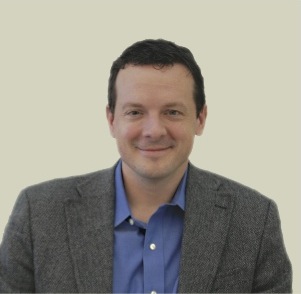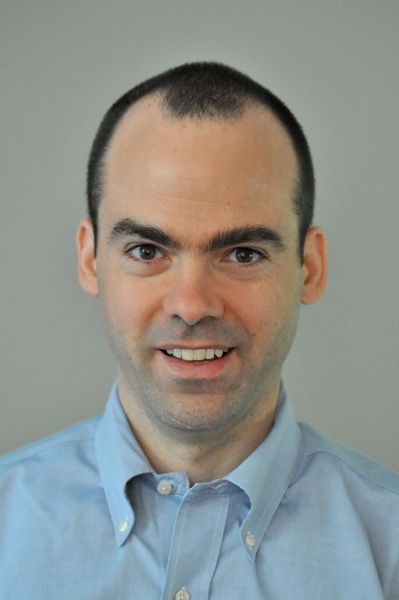Past Events Archive
To read details of past events select event from the list below
2013-02-07 Creative Computing and Literary Code
<html><style type=“text/css”>div.profile { float: left; padding-right: 0.5em;}</style></html>
<html><div class=“profile”></html> <html></div></html>
<html></div></html>
Nick Montfort
Associate Professor of Digital Media
Massachusetts Institute of Technology
Thursday, February 7, 2013
5:00 pm
Taylor Hall, Room 203
<html><div style=“text-align: center;”></html>Creative Computing and Literary Code<html></div></html>
“Creative computing” is a concept that incorporates but goes beyond video games, including hobbyist programming, the work of the demoscene, digital art, and electronic literature. This talk will sketch the space of creative computing and will show some ways that people (whether or not they identify as “programmers”) can use computation to produce conceptual, expressive, aesthetic, and imaginative output. After showing what has been done in creative computing at a high level, this talk will consider two very concise programs, about one line long, that offer an entry point for artists, writers, and humanists. Montfort’s creative work and historical examples of short programs will be shown.
Nick Montfort writes computational and constrained poetry, develops computer games, and is a critic, theorist, and scholar of computational art and media. He is associate professor of digital media in the Program in Writing and Humanistic Studies at the Massachusetts Institute of Technology and is now serving as president of the Electronic Literature Organization. He earned a Ph.D. in computer and information science from the University of Pennsylvania.
Montfort’s digital media writing projects include the interactive fiction system Curveship; the ppg256 series of 256-character poetry generators; the group blog Grand Text Auto; Ream, a 500-page poem written on one day; Mystery House Taken Over, a collaborative “occupation” of a classic game; Implementation, a novel on stickers written with Scott Rettberg; and several works of interac- tive fiction: Winchester’s Nightmare, Ad Verbum, and Book and Volume.
Sponsored by the Media Studies Program, English Department and Computer Science Department.
Individuals with disabilities requiring accommodations or information on accessibility should contact the Campus Activities Office, 845 437-5370.
2012-12-14 Hackathon
<html><style type=“text/css”>div.dokuwiki ul { margin-top: -13px; margin-left: 3em; } div.dokuwiki h2 { text-align: center; font-weight: bold;}</style></html>
What is a HACKATHON???
No, we will not be hacking into the FBI or crashing CIS. A Hackathon is where you code a program in a specific amount of time, in our case, 24 hours. Vassar’s very first hackathon is going to be based on a theme, where you can use any language, to code anything you want, as long as it is related to that theme.
For example, if the theme is Halloween
- make a pumpkin smashing game
- make a database that chooses silly costumes
- a program where you input age, costume and location and gives you statistics of getting awesome candy
You can work alone, or in pairs, and if you want to really challenge yourself, you can pick a random language from a hat! You don’t have to be great at coding, or do anything complicated, it’s all about fun and spending time with your fellow CS classmates.
During the Hackathon there will be…
- Pizza
- swag points
- brag sheet where your name and program name will be
- certificates for participants
- Trophy for the “winner” that will be displayed on the shelf in the asprey lab
- did I say swag points?
Sign-up sheets are around the labs and classrooms. Come participate in Vassar’s very first Hackathon! A monumental event.
The hackathon will start on Friday December 14<html>th</html>.
Contact Cat Morgan (camorgan [at] vassar [dot] edu>) or Sandy Pogarcic (sapogarcic [at] gmail [dot] com) if you have any questions!
2012-11-02 Wheeler Ruml Lecture
<html><style type=“text/css”>div.profile { float: left; padding-right: 0.5em;}</style></html>
<html><div class=“profile”></html> <html></div></html>
<html></div></html>
Wheeler Ruml
Associate Professor
Department of Computer Science
University of New Hampshire
Friday, November 2, 2012
OLB 205, 10:30am
<html><center></html>
Planning Algorithms: When Optimal Is Just Not Good Enough
<html></center></html>
Planning is a crucial capability - it enables robots to be autonomous and it helps people save time and conserve natural resources. Unfortunately, most planning problems are NP-hard or worse, so algorithms that guarantee optimal solutions are often impractical. In this talk, I'll discuss alternative guarantees on performance, such as bounded suboptimality and anytime convergence to optimality, and show how a new generation of more-informed heuristic search algorithms can meet them effectively in practice. I'll argue that, in addition to serving as the underlying engines of intelligent systems, heuristic search algorithms themselves can be usefully considered as rational agents.
Wheeler Ruml is an Associate Professor of Computer Science at the University of New Hampshire, where he leads the UNH AI Group. His current interests include heuristic search, optimization, and robotics, with an emphasis on planning under time pressure. He was selected for the DARPA Computer Science Study Panel, an NSF CAREER award, and the UNH Outstanding Assistant Professor Award. Before joining UNH, he led a team at Xerox PARC that used AI techniques to build the world's fastest printer. And yes, Wheeler is his real name!
2012-10-23 Going Mobile: Understanding the Mobile and Tech Startup Scene with Xamarin
<html><style type=“text/css”>div.avatar { float: left; padding-right: 0.5em;}</style></html>
<html><div class=“avatar”></html>![]() <html></div></html>
<html></div></html>
Bryan Costanich
Director at Xamarin
Tuesday, October 23, 2012
8:00pm - 10:00pm
Old Laundry Building 205
So you're a Computer Science major or prospective major, cranking out awesome code and having a blast. Or you're involved in Media Studies, Cognitive Science, or STS, with an interest in technology and the newest trends and inventions. But what's next? Are you looking to land an awesome internship, summer job, or just to enter the industry when you graduate? Do you know what's happening in the the real world of development, and what the hottest startups are working on? Do you know where development dollars are being spent, and what skills you need to get hired for the companies you read about?
If you answered 'no' to any of the above questions, then you need to come to this talk. Bryan Costanich, published author, former Microsoft Engineer, and head of the Edu team at Xamarin (one of the industry's hottest startups) is going to answer all of these questions and more. We're going to take a look at the business of development, with a focus on mobile development, perhaps the most important thing happening in the development space right now. We'll go over the major players - iOS, Android, and Windows Phone/Tablet - and give you insight into what you'll need to know to work in mobile, and in the tech industry in general.
You can learn more about Xamarin at http://www.xamarin.com. They are a growing company in the mobile space whose customers include National Instruments, Clear Channel, and SuperGiant Games (creators of the award winning Bastion game). Their founders and team include some of the people behind Mono (open source .NET development framework) and GNOME. Xamarin teams draw engineers from almost 20 countries all over the globe, including 2011 Vassar College alumna Nina Vyedin.
All majors, class years, and levels of coding experience are welcome (faculty included!). Free pizza and memes provided!
2012-10-03 Carlo Combi Lecture
<html><style type=“text/css”>div.profile { float: left; padding-right: 0.5em;}</style></html>
<html><div class=“profile”></html> <html></div></html>
Carlo Combi
<html></div></html>
Carlo Combi
Professor
Department of Computer Science
University of Verona
Wednesday, October 3, 2012
OLB 105, 10:30am
<html><center></html>
Modeling Temporal, Data-Centric Workflows in the Healthcare Domain
<html></center></html>
Workflow technology has emerged as one of the leading technologies in modeling, redesigning, and executing medical processes and some interesting workflow management systems are available. Nevertheless, such systems are lacking in an effective management of two key aspects: data dependencies and temporal constraints. In clinical/health context these two aspects are of paramount importance. For example, a surgery intervention could need the results of the concurrent bioptic analysis to be properly concluded; on the other hand, to successfully apply a fibrinolytic therapy to patients with ST-segment Elevation Myocardial Infarction (STEMI) a maximum delay of 30 minutes must be considered with reference to the emergency department admission.
In this talk we will introduce TNest, a new advanced structured and highly modular workflow modeling language that allows one to easily express data dependencies and time constraints during process design. All the features of TNest have been considered to model the process related to classical clinical guidelines, i.e., those for the management of STEMI patients, published by the American College of Cardiology/American Heart Association.
Carlo Combi was born in 1962. In 1987 he received the Laurea Degree in E.E. by the Politecnico of Milan. In 1993 he received the Ph.D. degree in biomedical engineering. He was in 1994 and 1995 Post-Doc fellow at the Department of Biomedical Engineering of the Politecnico of Milan. From 1987 to 1996 he worked within the research group in Medical Informatics at the Politecnico of Milan. From April 1996 to October 2001, Carlo Combi was with the Department of Mathematics and Computer Science of the University of Udine as Assistant Professor. Since November 2001, he is with the Department of Computer Science of the University of Verona: from November 2001 to February 2005, he was Associate Professor of Computer Science; since March 2005, he is Professor of Computer Science. Since October 2007, he is head of the Department. Main research interests are related to the database and information system field, with an emphasis on the management of clinical information. The two main areas are temporal information systems (time-oriented data and process modeling) and multimedia databases. He is author of more than 100 papers published on international journals and proceedings of international conferences. He is author, with Elpida Keravnou - University of Cyprus and Yuval Shahar - Ben-Gurion University of the Negev, of the book “Temporal Information Systems in Medicine”, Springer, 2010. He is involved in the scientific activity of several scientific international journals and conferences. Since January 1999 he is editorial Board Member, journal Artificial Intelligence in Medicine. Since July 2009 he is chair of the Artificial Intelligence in Medicine Society (AIME). He is guest editor of several special issues of international journals (Methods of Information in Medicine, Annals of Mathematics and Artificial Intelligence, Artificial Intelligence in Medicine, Journal of Intelligent Information Systems, Computers in Biology and Medicine).
Upcoming Event Details
For information on Current and Upcoming Events, please select our Upcoming Events Page.